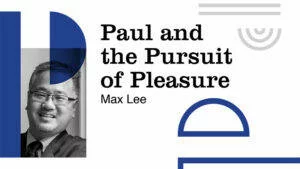One recent morning I gave my friend John Wilson, the longtime editor of Books & Culture, a copy of my new book, Introducing Evangelical Theology. By early evening he was tweeting his dissent about p. 122. There I summarize parameters from Donald Bloesch: “God’s providence is personal: we do not believe in fate. God’s providence involves design: we do not believe in chance.” John objected, “I’m a Christian, and I believe in chance.” However, he went on to concede, “But ‘chance’ has so many meanings. It turns out to be surprisingly tricky to define.” Indeed.
I responded with a distinction that surfaced through conversations related to the Creation Project, between chance and randomness. We can acknowledge “randomness” within God’s providence, while rejecting “chance” in the sense of fundamentally uncertain events lying outside the scope of God’s will. John and a couple of other tweeters decided that the subject needs more discussion, and here we are. This isn’t surprising, since these matters are perennial.
Questions of Chance and Randomness
Among the related issues worth discussing:
- Is the distinction between chance and randomness clear and defensible? Does it travel beyond English? (How) should we incorporate randomness within a doctrine of providence?
- How do biblical references to casting lots (e.g., Lev 16:8-10; Num 26:55-56; 1 Chr 24:5-19; Acts 1:26) bear on the reality of either chance or randomness?
- What are the implications of God’s omnipotence and omniscience for the breadth and depth of God’s will? Granted that God could actively will absolutely everything that happens, would it be beneath God’s dignity—or opposed to God’s love and creatures’ freedom—to do so?
- How, if at all, should our approach to randomness change in light of quantum mechanics? As we discussed further at a Creation Project consultation, does indeterminacy at the quantum level have solely epistemological or also ontological significance?
- How does a finite epistemic perspective affect judgments about providence? For instance, it is initially tempting to think that the legions of injuries to my fantasy baseball team—five starters within the first three weeks, my two best players (historically injury-free) for much of the year—arise by chance, that it wouldn’t be appropriate for God to will such matters. Almost immediately, though, I realize that the aggregation of these injuries is a circumstance affecting me in particular. Perhaps it would be cruel to tell the various players that God did not care enough about their lives and livelihoods to incorporate them in the divine will.
- How large are the effects of any chance or randomness that a doctrine of providence might incorporate? The film Run Lola Run captivated some of us in 1998 by playing with minute differences in timing. The story, in which Lola attempts to deliver a large sum of money within twenty minutes to prevent her boyfriend’s killing, is told three times. In the first version, she runs down the stairs and past a man with a dog; at the end she is accidentally shot by a startled police officer. In the second version, she trips over the man with the dog; at the end her boyfriend is run over by a speeding ambulance. In the third version, she leaps over the man with the dog; at the end the changed timing leads to a happy and whimsical ending.
It may be difficult to believe that a butterfly’s wings on the other side of the world have causal influence over us, but the world is deeply interconnected and timing can be everything. Which raises the question:If we exempt certain events or details from God’s will, at what point will the dominoes they affect—and God doesn’t affect—stop falling? If we exempt certain events or details from God’s will, at what point will the dominoes they affect—and God doesn’t affect—stop falling?
In our little tweetstorm, John Wilson soon “conjured . . . an image of you & me at a bar, talking about chance & randomness, you just referring to Bloesch, and the guy sitting at the next stool (he’s had a few) says ‘You don’t believe in . . . CHANCE, huh? Well now . . .’” This conjuring suggests, to be sure, that theological discussions need to engage respectfully with ordinary language use, personal intuition, and contemporary science. At the same time, though, the Christian tradition has reasons for using words carefully, helping us to understand our lives biblically rather than being hostage to cultural fortunes.
We cannot ignore experiences of apparent happenstance, moments that evoke the exasperated cry, “What are the odds?” Yet the existence of such “chance” moments may seem self-evident because we haven’t learned to feel at home in the linguistic world of “providence”—perhaps because we confuse God’s “willing” with “causing” in ways that would diminish the creaturely network of secondary causes. In any case, the folks at Sapientia thought that the set of issues raised in my exchange with my friend deserved more careful attention, especially in their year-long focus on divine action.
So, the dialogue is ready: It’s not a bar, and we have no idea from where you’re eaves-dropping on this conversation, but you’re certainly welcome to join us. We’ve asked a few scholars to weigh in on chance and Christianity: Vern Poythress, Josh Reeves, Dru Johnson, Greg Welty, and John Wilson. Specifically, we’ve asked them to sketch ways of integrating divine providence with the following question: What is “chance,” how (if at all) is it different from “randomness,” and what place (if any) do these concepts have within Christian faith and understanding?







Comments
Be the first one to make a comment!